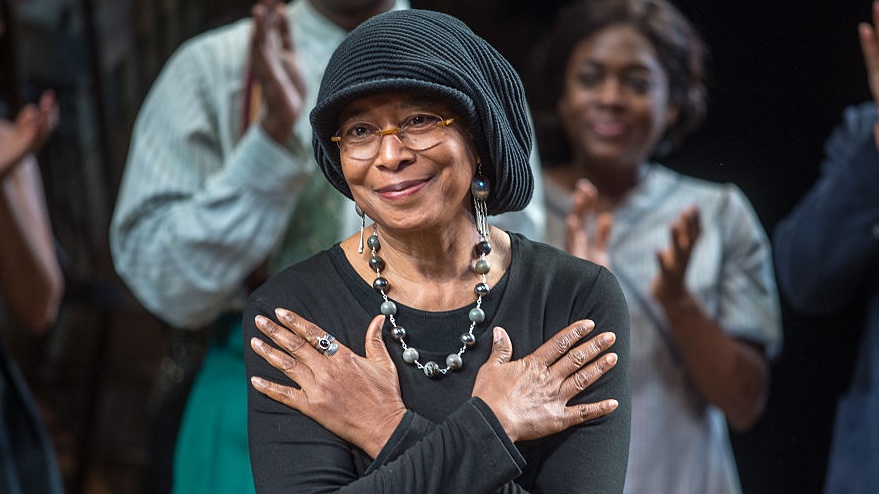Revered for her outspoken support for human rights and racial equality, writer Alice Walker's contribution to literature is the gift that truly keeps on giving. Born in Georgia to sharecroppers, the now 76-year-old's resume includes seven novels, four compilations of short stories, four children’s books, and plenty more essays and poetry compilations.
The Sarah Lawrence College graduate cemented her spot as a master of prose with her 1982 novel The Color Purple, which subsequently led to her winning the Pulitzer Prize for Fiction in 1983. Two years later, Steven Spielberg directed the critically-acclaimed film adaption.
Walker is known to have coined the term 'womanist,' meaning that an individual has beliefs that align with the modern feminist movement, but with more of a focus on the Black experience. A detailed onlooker of human interaction, much of her work highlights her experience growing up in the south and advocates that women lean into the concept of reformation, with an emphasis of ambition in moments of anguish.
Though certainly not all encompassing, the following five poems are a great introduction into the gist of Walker's perceptive.
1. Be Nobody’s Darling
As the title suggests, “Be Nobody’s Darling” focuses on encouraging women to embrace their uniqueness and ignore what societal norms suggest. Individualism should not be something to be ashamed of. In fact, the speaker warns of the dangers that can follow if a person conforms to someone else’s ideology. Those who foolishly believe what others tell them are likely to be cynical in the future. So, take pride in being an outcast, liberation will soon follow.
2. When You Thought Me Poor
Written from first-hand experience, “When You Thought Me Poor” depicts the manner in which Black people and other minority communities are mistreated by majority groups. Even when the subject experiences success, they’re still regarded as “crass” and such accumulated wealth is questioned. In short, minority groups can never be viewed as upstanding, because their skin alone has inevitably determined their socio-economic rank.
3. Expect Nothing
“Expect Nothing” advocates for the reader to remain content without expecting too much out of life, as that could lead to disappointment. When Walker writes, “Wish for nothing larger/ Than your own small heart,” she’s instructing her audience to manage their expectations and live their lives according to their individual fulfillment as opposed to seeking acceptance from their peers.
4. Women
In this work, Walker pays homage to the generation of women who walked before her, honoring their sacrifices to ensure she could receive benefits they were never afforded. Among overcoming adversity, other notable themes in “Women” include strength, vigor and admiration.
5. We Alone
One of her more well-known pieces, “We Alone” praises the individual power of humans, and the collective influence people have when working together. Material or monetary objects (in this case, gold) can quickly depreciate if enough people band together to rule it illegitimate. Because we’re a society influenced by wealth, mankind has a tendency to connect value with what they deem rare. By agreeing to a more opposite approach, we adopt a more carefree mindset.
Walker's themes of Black female empowerment and sovereignty made her an incredible asset to a community of people that too often aren't recognized for their accomplishments. At a time in contemporary society where these voices are unfortunately silenced by adversaries, Walker's continues to be the loudest of them all.
